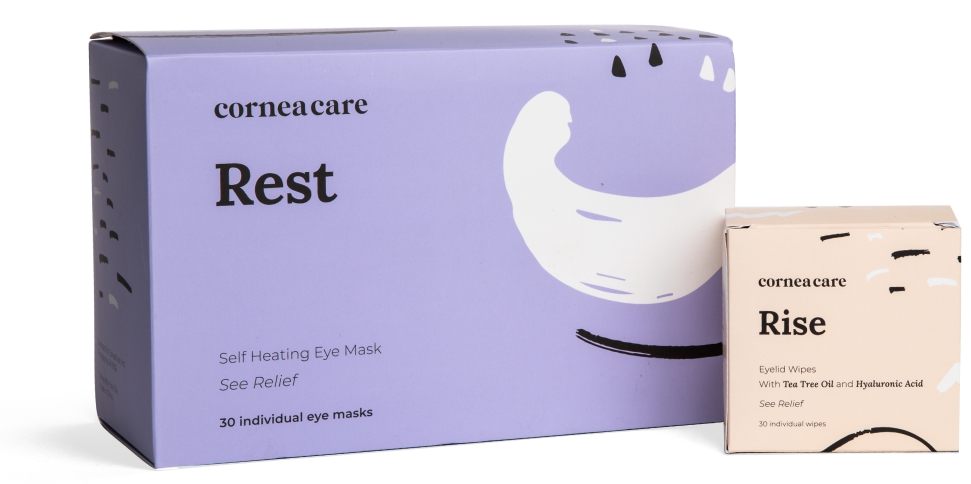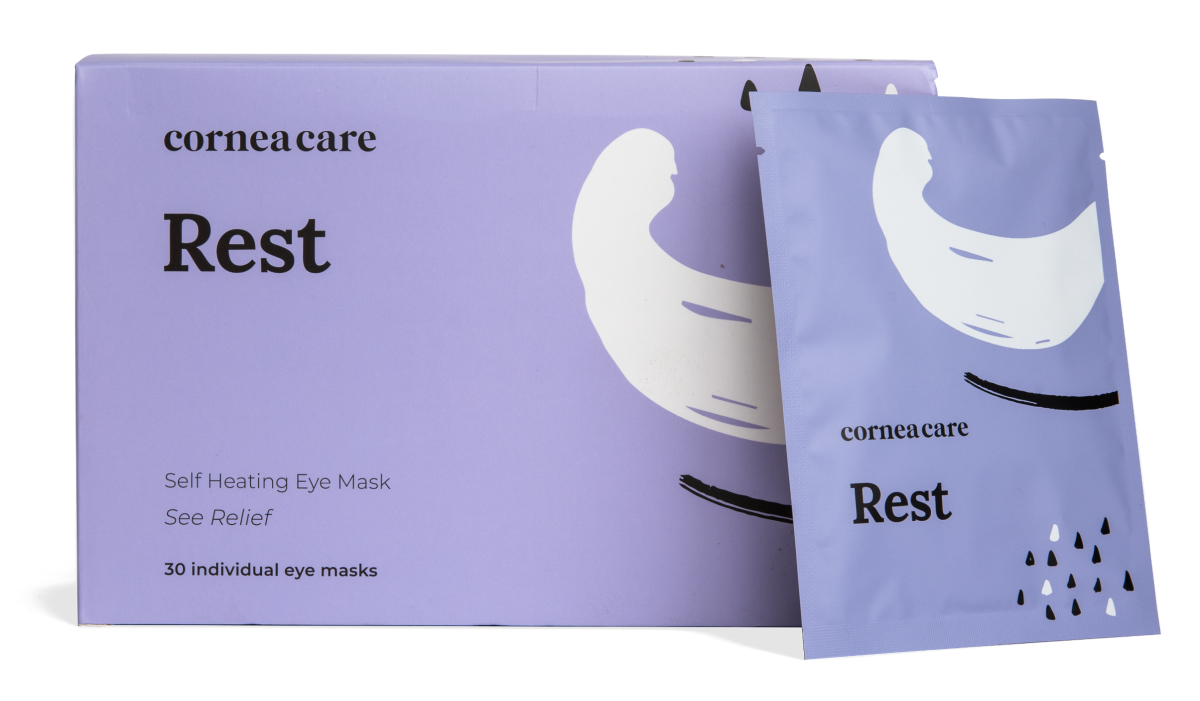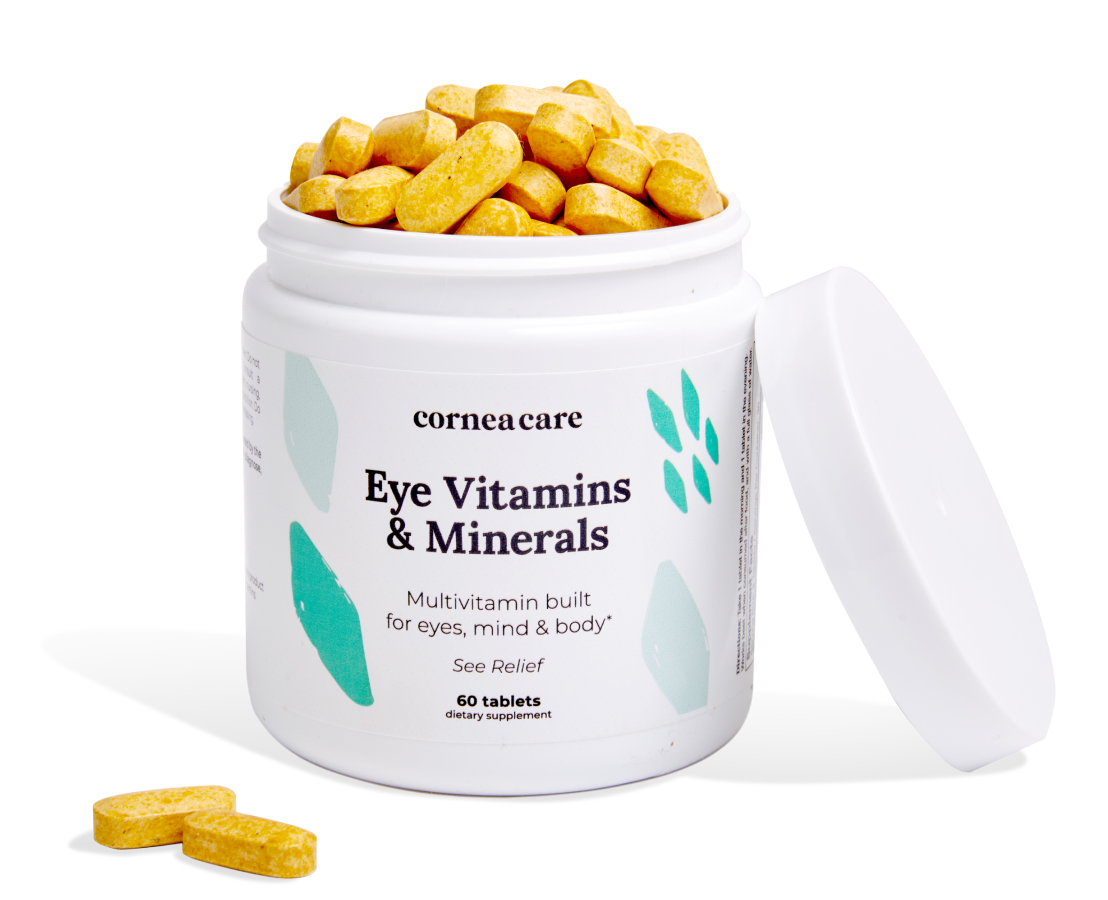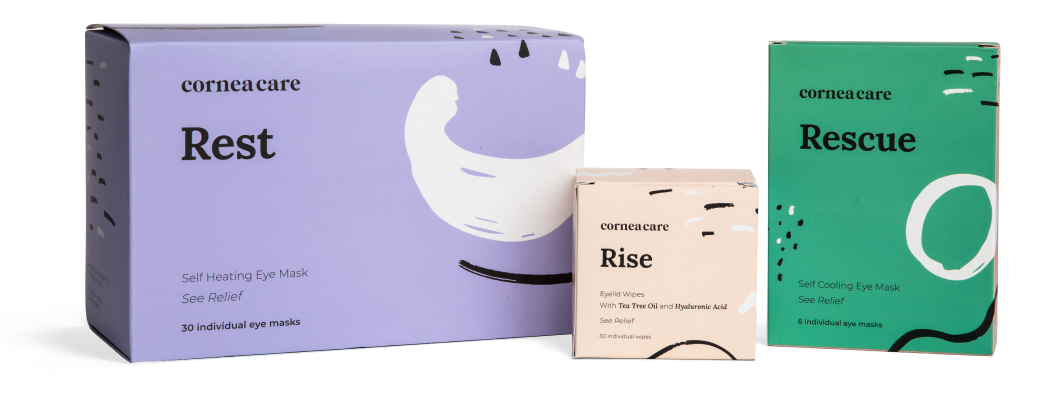Is My Eye Pain Caused by Sinus Pressure?
If you’ve ever wondered whether sinus pressure can cause eye pain, the answer is yes—it often can. The sinuses and eyes are closely linked, so when sinus problems arise, they can easily affect your eyes. This connection can cause you discomfort and other bothersome symptoms, but the good news is that most of these issues can be managed effectively.
Let’s take a closer look at how sinus pressure impacts your eyes and what you can do to find relief.
Key Points
- Sinus pressure can make your eyes hurt by putting strain on the nerves and muscles around them, sometimes causing blurry or double vision.1
- To ease sinus-related eye pain, you can try home remedies, over-the-counter options like decongestants or antihistamines, or see a doctor if the pain doesn’t get better.2
- Regular eye exams are a good way to determine if your eye pain is from sinus issues or something else, so you get the right care.

Foundation
Eyelid Hygiene Plan 2
Perfect for eye dryness, burning, itching, crusting/flaking of eyelashes and inflamed eyelids. Free shipping 📦.
Try today - $45
How Sinus Pressure Affects Your Eyes
Your sinuses are hollow cavities in your forehead, cheeks, and behind your nose. They help humidify the air you breathe and trap pathogens. However, when these cavities become inflamed or congested due to a sinus infection, chronic sinusitis, or allergies, they can cause a feeling of pressure that spreads to nearby areas, including your eyes.1
Sinus pressure can lead to eye pain and even sinus headaches. Sinus headaches typically cause pain around your forehead, cheeks, and eyes, intensifying the sensation of pressure and making eye-related symptoms worse. Swollen sinus cavities can press on the nerves and muscles that control your eyes, leading to additional strain or discomfort.1
In severe cases, inflammation from a sinus infection can affect the optic nerve and result in vision changes, including blurred vision, double vision, or even temporary vision loss if left untreated. Recognizing these connections is important for managing both sinus and eye-related symptoms effectively.1
Symptoms of Sinus Pressure
If you have eye pain due to sinus pressure, you may experience:1
- A feeling of pressure or fullness around the eyes
- Blurred or double vision
- Dry eyes due to inflammation affecting tear production
- Eye strain, particularly when focusing
- Redness or swelling near the eyes
These symptoms often overlap with other sinus issues, like a stuffy nose. In severe cases, untreated sinus infections can cause complications, such as vision changes or optic neuritis, which require medical attention.3
Sinus Pressure vs. Other Causes of Eye Pain
Although sinus pressure is a common cause of eye pain, it’s not the only one. Other conditions, like migraines, tension headaches, cluster headaches, and eye strain, can also lead to similar discomfort.1,2
Migraines, for example, often cause severe pain, light sensitivity, and vision problems like blurry vision or auras. Cluster headaches, though less common, create sharp pain behind one eye and may cause redness or tearing. Tension headaches typically cause a dull ache around the forehead and eyes but are unrelated to sinus congestion.4
If you’re not sure if your eye pain stems from sinus issues or another cause, schedule an appointment with your eye doctor. They can help pinpoint the problem and recommend appropriate treatment.
Managing Eye Pain Caused by Sinus Pressure
When sinus pressure leads to eye pain, finding relief focuses on easing the discomfort around your eyes and addressing the root cause of the pain. Here are effective approaches to reduce eye pain and improve comfort.

Rest
Warm Compresses
Perfect for eye dryness, fatigue, tearing, and puffiness of the eyelids. Free shipping 📦.
Try today - $30
Home Remedies for Eye Pain Relief
These simple home remedies can help reduce eye pain linked to sinus pressure:5
- Use a humidifier to keep the air moist, which can alleviate eye dryness and reduce discomfort caused by sinus congestion.
- Apply a CorneaCare warm compress over your eyes to relieve pressure and soothe strained eye muscles.
- Stay hydrated to thin mucus and ease the feeling of pressure near your eyes.
- Perform gentle nasal irrigation to reduce inflammation that may be contributing to eye pain.
Over-the-Counter Options for Eye Relief
Over-the-counter (OTC) medications can specifically target the pressure contributing to your eye pain:2
- Decongestants reduce swelling in nearby nasal passages, which can relieve the strain felt in the eye area.
- Antihistamines are helpful when allergies cause inflammation, reducing sinus pressure and easing eye-related symptoms.
- Nasal sprays can quickly address inflammation affecting the nasal and sinus areas, which can reduce related eye pain.
These treatments can provide short-term relief. If your eye pain continues or worsens, consult a healthcare professional to explore other options for both eye and sinus care.
Lifestyle Changes for Long-Term Prevention
Preventing sinus issues can reduce the likelihood of sinus-related eye pain in the future. Simple adjustments can make a big difference:2,5
- Strengthen your immune system by eating a nutrient-rich diet and supplementing with CorneaCare eye vitamins. Get regular exercise and good sleep.
- Avoid common triggers for sinus pressure such as smoke, strong odors, pollutants, and allergens.
- Use a humidifier during dry seasons to prevent dry eyes and irritation of the nasal passages.
- Address seasonal allergies with antihistamines or other preventive treatments to keep your nasal passages clear.

Multivitamin
Eye Vitamins & Minerals
A single multivitamin to address the nutritional needs of your eyes, mind and body. 📦 Free shipping.
Try today - $35
When to Seek Medical Attention
While most sinus-related eye pain resolves with home care or OTC treatments, sometimes your symptoms should be evaluated by a doctor. Signs that you may need to consult a healthcare provider include:3
- Persistent or worsening symptoms despite treatment
- Vision changes like blurry vision, double vision, or vision loss
- Severe pain around the eyes or face
- Redness or swelling near the eyes that doesn’t improve
- Symptoms suggestive of a bacterial infection, such as fever, bad breath, or a sore throat that lingers
If chronic sinusitis or recurrent sinus infections are a problem, your doctor may refer you to a specialist for further evaluation and treatment options.
Complications of Untreated Sinus Issues
In rare cases, untreated sinus infections or severe sinus problems can lead to complications affecting the eyes. For instance, bacterial infections involving the sphenoid or maxillary sinuses can spread to the eye area, causing more serious conditions like orbital cellulitis or abscesses. These situations can threaten eye health and require immediate medical intervention.1
Why Eye Exams Are Important
Regular eye exams are important to maintain eye health because sinus pressure and eye pain can mimic other conditions. An eye doctor (optometrist or ophthalmologist) can identify whether your symptoms are sinus-related or due to other possible causes, such as eye strain or optic neuritis.

All Rounder
Eyelid Hygiene Plan 3
Perfect for eye dryness, burning, itching, grittiness, crusting/flaking of eyelashes and inflamed/swollen eyelids. Free shipping 📦.
Try today - $60
Can Sinus Pressure Cause Eye Pain FAQs
Yes, sinus pressure can cause eye pain because the sinuses are located near your eyes. When sinus cavities swell due to infection, allergies, or chronic sinusitis, they create a feeling of pressure that can radiate to the eyes. This may cause discomfort, pain, or a heavy sensation in the eyeballs. Treating the underlying sinus issue, such as reducing inflammation or draining mucus, usually alleviates the pain and restores comfort.
Signs that a sinus infection may have spread to the brain include severe headaches, high fever, confusion, seizures, neck stiffness, or significant vision changes like double vision or vision loss. These symptoms are uncommon but can signal serious complications such as a brain abscess or meningitis. If you notice these red flags alongside sinus issues, seek emergency medical attention to prevent further complications and get treatment.
To treat sinus eye pain, focus on reducing sinus inflammation and congestion. Use decongestants or nasal sprays to open nasal passages, and antihistamines if allergies are a factor. Home remedies like a warm compress, steam inhalation, or a humidifier can also help. Staying hydrated promotes sinus drainage and reduces pressure. If pain persists or worsens, consult a healthcare provider to address the underlying cause, such as a bacterial infection or chronic sinusitis.
Red flags for sinusitis include symptoms that persist for more than 10 days, worsening pain or swelling around the eyes, high fever, vision problems, or thick yellow or green nasal discharge. If you experience severe facial pain, a sore throat that doesn’t improve, or bad breath alongside these signs, it may indicate a bacterial infection or other complications.
Putting It All Together
The sinuses, located so close to your eyes, can directly influence how you feel and see. Taking care of your sinuses through home remedies, over-the-counter treatments, and medical attention when necessary can significantly improve your comfort and overall eye health.
If you experience ongoing sinus problems or recurring eye pain, address these issues early to protect both your sinuses and your vision. By combining proper eye care and sinus management, you can keep these interconnected systems healthy and functioning well.
What’s Next
If your eyes are hurting, you want answers! These additional articles can help you understand what may be at the root of your eye pain and when to seek medical attention:



